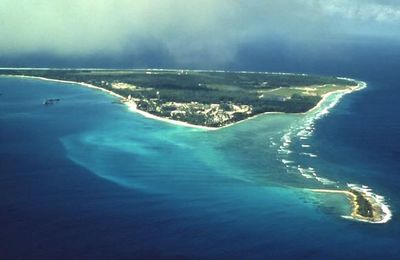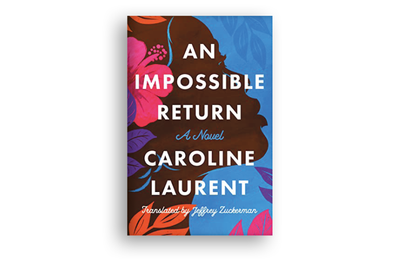The 22nd May treaty signed by the prime ministers of the United Kingdom and Mauritius is the best outcome for Chagossians, the UK, Mauritius, the United States, the UN and the rule of law, and was achieved through diplomatic compromise. It has ended nearly 60 years of bilateral tension and one of the worst human rights violations perpetrated by the UK in the 20th century. Following a period of increasing international isolation over Chagos, the UK—by signalling compliance with international law, UN General Assembly resolutions and rulings by the International Court of Justice (ICJ) and other courts and tribunals—will restore its international reputation as a law-abiding nation.
Although discussions about the future of the islands had taken place intermittently since 1982, the real negotiations only began in November 2022 under the previous British and Mauritian governments. Since then, opposition to an overall settlement has increased. There are those who want to hang on to every last rock of British colonial territory; there are others who see this as a means of attacking the government and its commitment to international law.
They deploy a range of false arguments to do so—that Britain is surrendering its sovereignty, that Mauritius is in league with China and will ultimately offer the islands as a base, that the Chagossians want to remain British, that the Islands have never belonged to Mauritius, or that the UK/US base will be seriously threatened and no longer able to defend western interests, and so on. Certain sections of the media are surprisingly hostile even though President Trump and his administration firmly support the deal, as do almost all states.
By far the largest Chagossian group, the Chagos Refugees Group (CRG) in Mauritius, led by Olivier Bancoult since 1983, also supports the treaty. Bancoult attended the 101st meeting of the Chagos Islands All-Party Parliamentary Group (APPG) on 13th May, telling members that most Chagossians support the treaty as the only way in which they will be able to return for visits and resettlement. The treaty provides for Mauritius to facilitate resettlement (though not on Diego Garca) and a UK-capitalised trust fund of £40m for the benefit of Chagossians.
The Chagos Archipelago was detached from Mauritius on 8th November 1965 and renamed the British Indian Ocean Territory (BIOT) to provide for a US base on Diego Garcia (DG). In the 1965 Lancaster House Agreement with pre-independence Mauritius, the UK gave a legally binding undertaking to “return” the territory when it was no longer needed for defence purposes. The 55 Outer Islands never were needed, and yet Chagossians were deported to Mauritius and Seychelles between 1968 and 1973.
The campaign for the return of the Chagossians to their islands began in the 1970s, attracting international support and helping focus attention on Mauritius’ rightful claim to the territory. Despite this, the international community, UK parliament and the public remained largely unaware of what had happened until the late 1990s, with the release of the Chagos files to the National Archives. A cover-up had deceived officials and ministers, parliament, the public and the UN into believing that the Chagossians were contract workers from Mauritius and Seychelles and that BIOT was a legitimate overseas territory under British sovereignty. This led to the first court case and successive litigation, known as the Bancoult litigation, which revealed what had occurred between 1965 and 1973 and provided the foundation for more recent international litigation.
All in all, the UK’s gradual shift from resistance to negotiating an overall settlement took 25 years. It was brought about by international isolation and by domestic and international litigation: the ICJ and the endorsement of its Advisory Opinion by the UN General Assembly in 2019, judgments by other international courts, and UN General Assembly resolutions going back to 1965. UN human rights bodies, the Commonwealth, the African Union, the Southern African Development Community (SADC), the EU, NGOs, academics, lawyers, playwrights and diplomats have contributed to this outcome, not least parliamentarians and the Chagos APPG, which was established in 2008.
The treaty was laid before parliament on 22nd May under the 2010 Constitutional Reform and Governance Act, which requires 21 working days for consideration of a treaty by parliament—a period that expired in this case on 3rd July. After two Lords committees (International Agreements; International Relations and Defence) heard evidence from expert witnesses for and against the treaty—including foreign office minister Stephen Doughty, former ICJ judge Christopher Greenwood and the lawyer and author Philippe Sands—their subsequent reports both accepted the need for ratification.
On 30th June an opposition motion requesting the government not to ratify was defeated by 205 to 185 votes in the Lords, clearing the way for a short bill to implement the treaty. It could take a further six months before ratification. The government said it would address concerns expressed in the debate, especially regarding resettlement, the accountability of the Trust Fund and enhanced engagement with the Chagossians.
The treaty contains detailed defence and security provisions to protect the base, its maritime zone, sea and airspace. While Mauritius regains sovereignty, Diego Garcia will remain under British control and administration. Mauritius will grant a 99-year lease with an option of a 40-year extension. The financial arrangements are complicated. In summary the average annual cost at 2025/26 prices will be £101m every year. Mauritius will be paid an annual sum varying between £165m (first three years) and £120m (next 10 years). Thereafter, payments will be linked to inflation. There will also be an annual grant of £45m for 25 years to support economic and welfare projects in Mauritius. The total expected cost of the financial package is estimated at £3.4bn, not the £30bn often quoted.
There is provision for conservation of the archipelago’s marine environment and the creation of a Mauritian marine protected area (MPA), for which the UK will provide scientific advice and support. But there are conditions on land use for the islands which may need an exchange of letters to make clear that there is nothing in the treaty that would constrain resettlement on the Outer Islands. A Joint Commission is to be established, in which—just as in the agreement of the deal itself—compromise and good faith will be necessary in implementing the treaty and managing any disputes.













